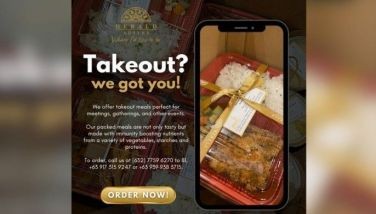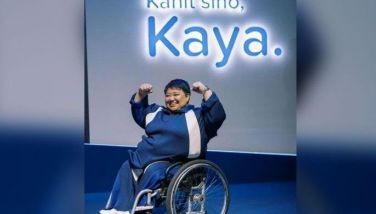Three road nuisances
There are three road irritants I often encounter on our roads these days: “kamote riders”, “Ingat sa byahe” posters, and the use of sirens and blinkers of VIPs or those feeling like VIPs.
Let’s start with the first one. I don’t know why they are called “kamote riders”, but the term is now commonly used in the Philippine driving community to describe erring or reckless motorcycle riders. It is, of course, an undeserved comparison to the lowly and humble sweet potato. But I think the likely reason motorcycle or small bike riders are likened to a kamote when they act clumsily or recklessly on the road is that, despite riding small and open motor vehicles --which are inherently dangerous-- their otherwise common and unremarkable presence draws attention through their reckless driving and disproportionate audacity.
It may also reflect the frustration of four-wheeled vehicle drivers towards their smaller counterparts. This frustration is understandable, given the peculiar custom in traffic law enforcement in our country, where authorities often immediately presume the driver of a four-wheeled vehicle is at fault in accidents involving injured or deceased motorcycle riders. Usually, the driver is detained (on what grounds, probable cause?) pending further investigation, even when witnesses and dashcam or CCTV footage clearly show that the motorcycle rider was at fault and the four-wheeled vehicle had no contributory negligence.
There have recently been several accidents on our roads involving motorcycle riders. Not all of these riders are “kamote riders”, of course, but many seem to be. It’s as if they obtained their driver's licenses out of nowhere, judging by their hurtling down the road, sudden lane switches, or tendency to block traffic in fast lanes while taking their sweet, leisurely time, despite the rule that any vehicle moving at a speed less than the normal speed should stay in the right-hand lane.
Authorities should look into or review the qualifications of these motorcycle drivers, especially those new to the “habal-habal for hire” or Transport Network Vehicle Service (TNVS) market. Not a day goes by without me seeing a TNVS rider weaving recklessly in and out of traffic. I was told that their incentive mechanism inadvertently encourages them to take unnecessary risks. This matter should be looked into.
The second common road nuisance is the “Ingat sa byahe” posters featuring enlarged faces of politicians, placed alongside the road every hundred meters or so. Any frequent traveler to the north of the province, like myself, may by now be familiar with the face of a daughter of a senator. The senator is on her second and last term in the Senate, which expires in June 2025.
The posters are not unsightly (far from it); rather, they are distracting because the face is disproportionately larger than the “Ingat sa byahe” text. The unfamiliar, blown-up face, in fact, draws the driver’s attention away from the road for more than just a split-second. It might have been slightly excusable if the personality had something to do with transportation. However, it’s still classic “umi-epal”, a Filipino slang term that means ‘to grandstand, to steal the scene, or to grab attention in matters that do not really concern them.' (Solis, Baldo-Cubelo, & Cox, 2016).
The third common road nuisance is the use of sirens and blinkers by VIPs or those who feel like VIPs. I don’t understand why these non-emergency vehicles are considered so important that they feel entitled to bypass normal traffic flow. Their sirens and blinking lights signal everyone else to clear the way as if their government business is more important than anyone else’s --it rarely is.
All other vehicles must give way to ambulances, police cars, and fire trucks during emergencies. But why should top government officials or self-proclaimed VIPs receive the same deference? Is their business truly more urgent than that of a lawyer rushing to a courtroom, or a farmer transporting perishable products, or a truck driver delivering goods to feed people?
People had a welcome respite from the “wang-wang” vehicles during the tenure of the late former president Noynoy Aquino, as part of a broader campaign against corruption and entitlement. However, the culture of entitlement among public officials returned with a vengeance during the administration of former president Rodrigo Duterte. Thankfully, President Ferdinand Marcos Jr. has recently issued Administrative Order 18, which prohibits government officials and personnel from using sirens and blinkers, similar to the “no wang-wang” policy of the Aquino administration.
- Latest




















